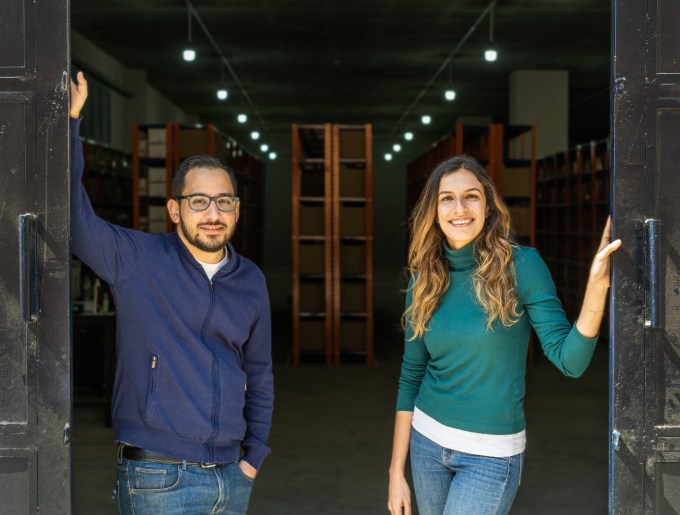When merchants launch their e-commerce businesses, they can easily manage the end-to-end operations in the early stages. But as they begin to grow, managing their own operations, from warehousing and logistics to delivery and cash collection, can become difficult. This can prevent them from scaling effectively despite having a steady inflow of demand.
Now, there’s a need to offload some of this workload. This is where e-commerce fulfillment services come in handy.
Today, Flextock, one such company providing this service to businesses and consumers in Egypt, is announcing that it is part of Y Combinator’s Winter 2021 batch. Founded by Mohamed Mossaad and Enas Siam in September 2020, the Egyptian company launched in stealth this January.
According to COO Siam, the founders noticed that as e-commerce activities in the Middle East and North African regions accelerated due to the pandemic, merchants were left overwhelmed with the volume of orders they received.
“We saw it as an opportunity to build a tech-enabled platform to be able to help anyone that wanted to grow their own independent brand or store,” she told TechCrunch. “We wanted them to focus on their products and marketing while leaving the supply chain and logistics bit to us, which we do through our end-to-end proprietary software.”
Mossaad, the company’s CEO, describes Flextock as a tech-enabled fulfillment provider. When merchants sign up to the platform, they send their products to one of the company’s fulfillment centers. Flextock takes the whole catalog and tags the products for tracking purposes. Then, integration is made between Flextock and any online store they use, be it Shopify, WooCommerce, Wix and Odoo, among others.
As orders are made, Flextock packages and ships the products from the fulfillment center to the customers. Flextock doesn’t own any delivery vehicles, so to achieve this, the company partners with existing logistics companies in Egypt. This model has helped the startup to create a marketplace for different last-mile delivery companies in the country.

Image Credits: Flextock
There’s also a dashboard for these merchants to track each order, get more visibility into their shipping process and know how well their products sell.
Flextock makes money on a per-order basis. That means the merchants on the platform pay a flat fee that changes with respect to the volume of products moved.
Mossaad says that since the company beta launched in January with more than 20 businesses, it has been growing 50% week-on-week across 28 cities in the country.
According to the CEO, Flextock is the first end-to-end fulfillment service in Egypt. And in a market that will likely see more competition in the next couple of years, Mossaad thinks Flextock has the opportunity to become the market leader.
Behind this rationale is that the six-month-old startup is backed by Y Combinator and has also raised $850,000 which is just the first part of its multi-million-dollar pre-seed round that will close sometime this year.
“We were able to very quickly get the acceptance of YC given the size of the opportunity we are focused on. We believe that commerce is expected to change in the Middle East and Africa, and Flextock is going to be at the forefront of powering this next generation of commerce,” he said.
The founders combine a wealth of corporate experience and a strong track record of scaling tech startups in the MENA region.

L-R: Mohamed Mossaad (CEO) and Enas Siam (COO)
Siam started her career managing supply operations at Nestle across the Middle East and North Africa. Later, she became the General Manager of Careem Bus, a mass-transit service and Uber subsidiary, where she helped build the product from scratch and grew it to 150,000 monthly rides in a year.
Mossaad, on the other hand, has worked on multiple turnarounds across different African countries during his time at Bain & Company. He joined Egyptian online food delivery platform, Elmenus, as Chief Strategy Officer. He helped scale the company’s revenues 5x in less than a year and was instrumental to its $8 million Series B round.
The CEO says Flextock has its sights on other African and Middle Eastern markets — specifically Saudi Arabia — and the plan is to provide its services to over 1 million businesses in these regions over the next decade.
“We are on a mission to enable more than 1 million merchants in Africa and the Middle East to sell online without carrying out the hassle of running their own operations. We are well-positioned to do that, and hopefully, we will be able to achieve that in a record time.”

